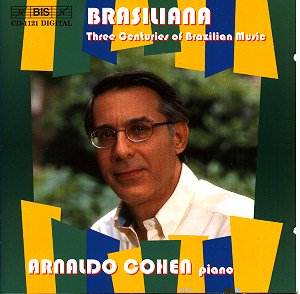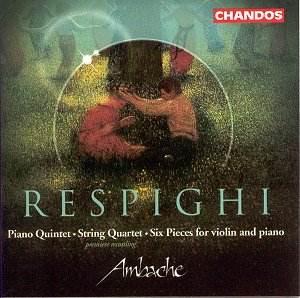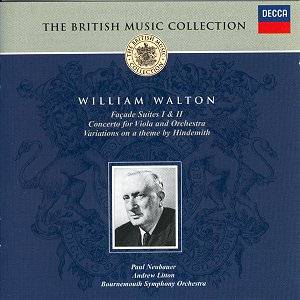 Composer: Various Brazilian Composers
Composer: Various Brazilian Composers
Works: Cláudio Santoro: Paulistana no 4; Paulistana no 1; Mozart Camargo Guarnieri: Dança Negra; Ponteio no 49; Henrique Oswald: Il neige; Francisco Mignone: Valse de Esquina no 1; Francisco Braga: Corrupio; Luiz Levy: Valsa Lenta no 4; César Guerra Peixe: Prelúdio Tropical no 2; Eduardo Dutra: Prelude in f sharp minor Op. 32; Octavio Pinto: March, little soldier!; Sleeping time; Leopoldo Miguez: Peça no 3; Peça no 8; Luiz Álvares Pinto: No 24 in a minor; No 21 in d minor; Francisco (Chiquinha) Gonzaga: Gaúcho – Tango Brasileiro; Alberto Nepomuceno: Air (from Suite Antiga); José Mauricio Nunes Garcia: Fantasia para Pianoforte no 4; Heitor Villa-Lobos: O Polichinello; Valsa da Dor; Radames Gnattali: Valsa no 7; José Siqueira: Valsa no 3; Ernesto Nazareth: Apanhei-te, Cavaquinho; Alexandre Levy: Cœur blessé; Francisco Mignone: Congada (Dança brasiliera); Fructuoso Vianna: Serenata Espanhola Op. 1 no. 2; Ernesto Nazareth: Odeon – Tango Brasileiro; Oscar Lorenzo Fernandez: Suite Brasileira no 2: Ponteio; Moda; Cateretê
Performers: Arnaldo Cohen, piano
Recording: Live recordings made in the former Academy of Music, Stockholm in June 2000
Label: BIS
The compilation “Brasileira: Three Centuries of Brazilian Music” illuminates a rich trove of piano works that reflect the complex cultural tapestry of Brazil. As the detailed notes by Paul Myers suggest, Brazil’s contribution to the piano repertoire is vast, rivaling any nation in sheer volume and diversity. This collection traverses nearly three centuries, showcasing an array of composers whose works embody the nation’s historical and cultural evolution, from colonial influences to contemporary expressions.
Arnaldo Cohen’s performance is characterized by a vibrant dynamism that captures the essence of Brazilian music. His interpretation of Cláudio Santoro’s “Paulistana no 4” bursts forth with the exuberance typical of Brazilian carnival, effectively setting the tone for the disc. The following pieces, notably Mozart Camargo Guarnieri’s “Dança Negra” and “Ponteio no 49,” display a keen sense of rhythm and texture, with Cohen infusing each note with a distinct flair that reflects the syncopated rhythms and lyrical melodies inherent in Brazilian styles. The technical demands of these works seem to present no challenge to Cohen, whose virtuosity shines, especially in the spirited tangos and waltzes by composers such as Ernesto Nazareth and Francisco Mignone.
While Cohen excels in the more exuberant selections, the earlier works, such as those by Luiz Álvares Pinto and José Mauricio Nunes Garcia, reveal a more academic character. The “lessons” by Pinto, while historically significant, come off as somewhat austere in Cohen’s interpretation, lacking the warmth and rhythm that characterize the later pieces. Similarly, Garcia’s “Fantasia para Pianoforte no 4,” despite its technical fluency, suffers from a slightly stilted balance between hands, diminishing the potential for lyrical expression. This contrast between the more historically rooted works and the lively contemporary pieces reflects not only the evolution of Brazilian music but also the varying degrees of expressive potential within the repertoire.
The engineering quality of the recording is noteworthy, with BIS achieving a clarity that allows each nuance of Cohen’s performance to resonate. The acoustic environment of the former Academy of Music in Stockholm adds a warmth that enhances the listening experience, allowing the listener to appreciate the intricate details of the piano’s timbre. The decision to include shorter works—most clocking in under five minutes—offers a delightful sampling of diverse styles rather than an exhaustive exploration of any single piece, making it accessible for casual listeners while still rewarding for those seeking deeper engagement.
The breadth of this collection is impressive, presenting a panorama of Brazilian piano music that extends well beyond the familiar works of Villa-Lobos, who is represented here by only two selections. Each track stands as a testament to the cultural richness of Brazil, and the performances encapsulate the infectious spirit of its music. Cohen’s ability to navigate such a wide-ranging repertoire with both technical mastery and interpretive insight makes this disc an essential addition to the library of anyone interested in the broader landscape of classical music.
A vibrant exploration of Brazilian piano music emerges from this recording, revealing a wealth of cultural expression that deserves recognition and appreciation. Such a collection not only highlights lesser-known composers but also affirms Brazil’s significant role in the global musical narrative.



